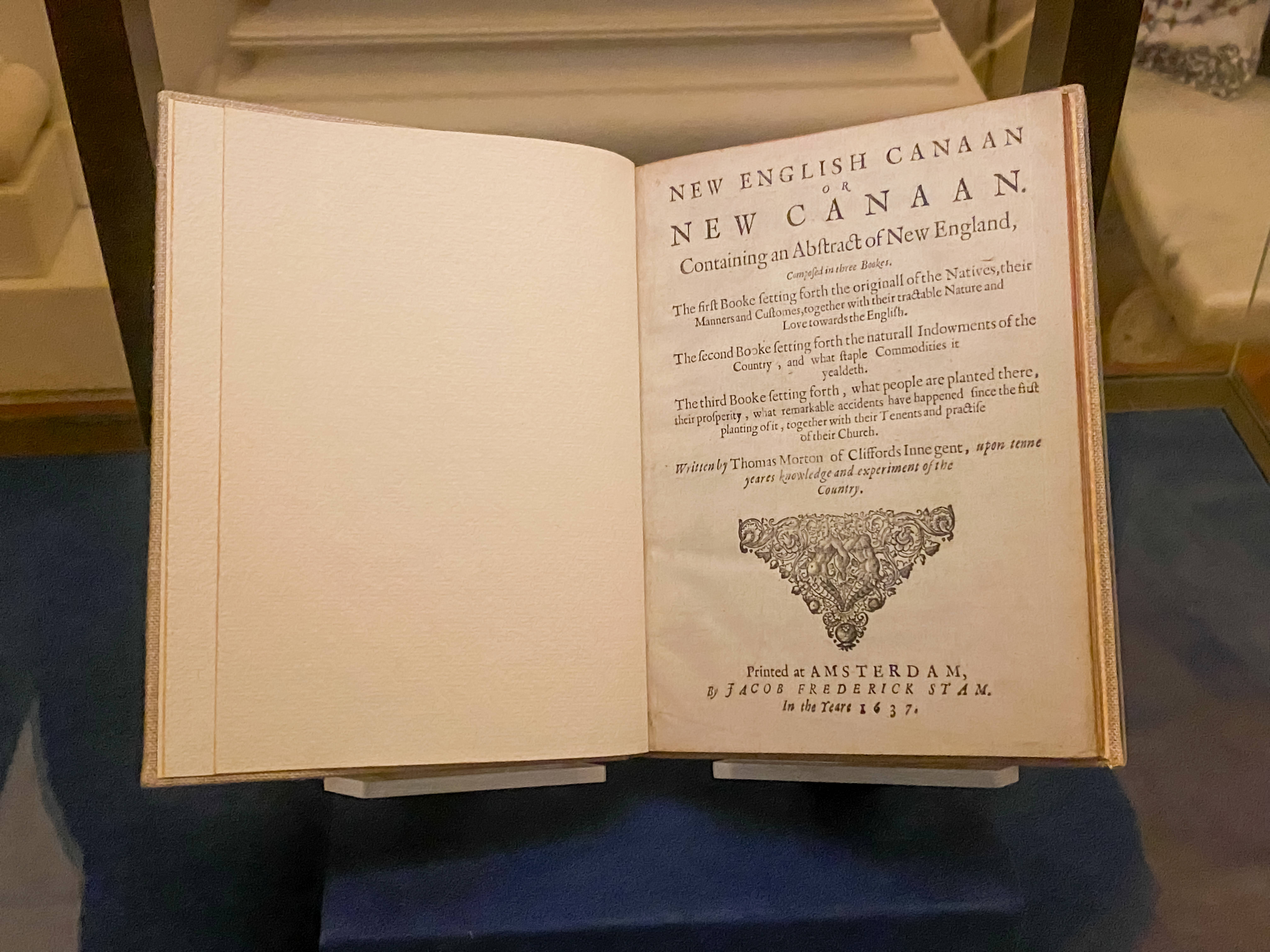The early history of European colonization of America is often romanticized, but this is far from the messy truth. In reality, colonization was achieved by rival groups of settlers with competing agendas, ideologies, and religious beliefs. As these groups jostled for control, conflicts were bound to occur, and they were just as petty as many that play out in today’s political environments. One way to illustrate this is with the case of the first book to be banned in America.
ADVERTISEMENT
The case took place in 1637 when Thomas Morton, a lawyer, writer, and social reformer from Devon, England, published his book New English Canaan, which criticized the Puritans he lived among in the Massachusetts Bay colony. Although Puritans were not popular with everyone living in colonial New England, Morton’s scathing appraisal of their customs and political structure was a step too far for many, which led to the New England Canaan being banned – an act that likely made it the first book to be officially censored in the New World.

Morton’s book was probably the first book to be banned in America.
Image credit: EWY Media/Shutterstock.com
To be sure, Morton was not an innocent figure in this conflict. Ever the contrarian, he had an established history as a pest among the Puritans in his community.
He arrived in America with the Puritans in 1624 and helped co-found the settlement of Merrymount, which is now Quincy, Massachusetts. But while the Puritans had mostly set out to create a new, pure Christian commonwealth free from the excesses they perceived in the Church of England, Morton sought commercial opportunities.
Given these differences, Morton and the Puritans were always likely to fall out, but he further antagonized them with his activities in the New World. For instance, Morton fostered friendly relations with Indigenous peoples and encouraged trade, even going as far as selling them guns. Although his views on these communities were pretty progressive compared to the Puritans, who simply saw them as pagan heathens who needed to be converted to Christianity, Morton still referred to them as “savages” and was happy to colonize their lands.
In addition, the founders of the Massachusetts Bay Colony ran a strictly controlled society that adhered to rigid beliefs about life and worship. Women and children were taught to read, but this was only so they could learn from the Bible directly. Swearing was prohibited and punishable by law and all entertainment that was not involved in church services was forbidden. In contrast, Morton, who was once referred to as the “lord of misrule” by the Plymouth Colony Governor William Bradford, promoted a freer-spirited and more hedonistic lifestyle.
But by far his most controversial act was the erection (stop it) of a maypole in Merrymount in 1627, which he and his followers used for celebrations. Of course, the Puritans saw this as nothing short of an immoral, pagan, and ultimately sinful activity, especially as it threatened to import to the New World all the excesses of the “old world” they hoped to escape (maypoles were an old symbol of fertility and festival).
ADVERTISEMENT
By this point, Merrymount was regarded as an existential threat to the Christian commonwealth the Puritans wanted to create, so they were prepared to take action to stop its immorality from corrupting the rest of the colony.
So, when Morton and his community gathered to celebrate again in 1628, a Puritan militia led by Myles Standish (who Morton nicknamed “Captain Shrimp”) invaded, cut down the pole. Morton was then tried and found guilty of selling arms to Indigenous peoples, and was exiled to an island off the coast of New Hampshire, where he was left for dead. In act like something from Disney’s Captain Jack Sparrow’s playbook, Morton somehow managed to get himself off the island and then went back to England, where he sued the Massachusetts Bay Company.
This trial became the basis for his controversial book. He initially attempted to get it published in 1633, but the printers were stopped by interference from “agents for those in Newe-England”. He eventually succeeded in publishing his text in Amsterdam, much to the chagrin of his enemies, who attempted to stop copies from making it to New England.
Morton did not hold back. His book tore into the Puritans, portraying them as religious fanatics who were intolerant, cruel, and hypocritical. He contrasted their theocracy with what he saw as the harmonious and free lifestyle of Indigenous peoples and his own ideas for how the colony should function. He also mocked the Puritans’ religious beliefs and governance, described them as incompetent, and accused them of unlawfully taking Indigenous land (again, he was happy to do this himself, but you know how it goes).
ADVERTISEMENT
The Massachusetts Bay authorities quickly stamped down on the publication, banning its circulation in the colony. They feared it would undermine their authority and encourage opposition to their strict theocratic rule.
The crackdown on Morton’s book demonstrates the delicates rifts and political instability in Puritan New England at this time. Far from being a harmonious endeavour, the founding of the early colony was riddled with anxiety and uncertainty. The banning of the book also shows that there has long been a significant divide between the visions of how America should be governed and how censorship is a tool for managing opposition.
Source Link: What Was The First Book To Be Banned In America?